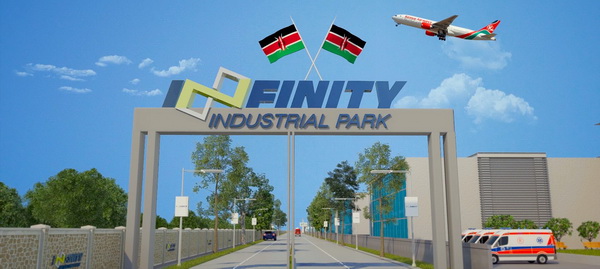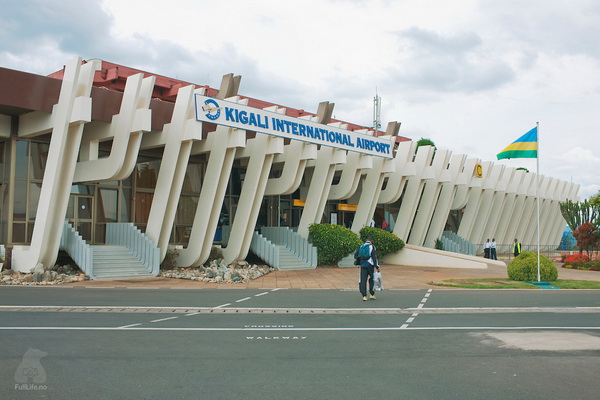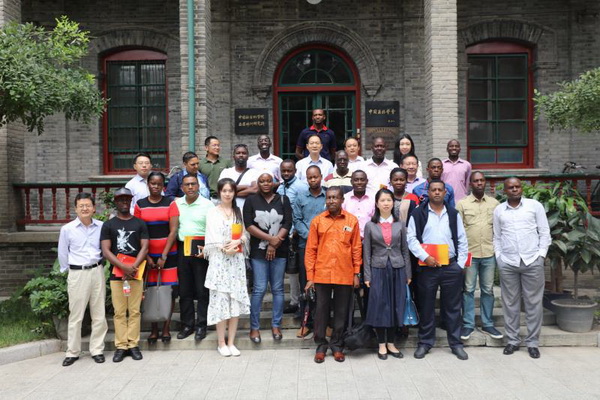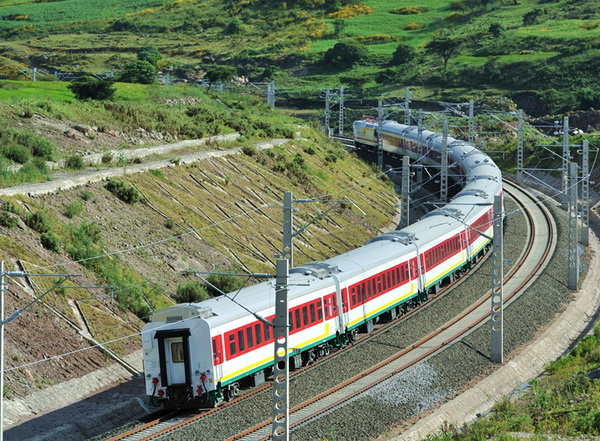


The development model undertaken by Kenya in recent years explains the country's fast economic growth. Architect's presentation of Infinity Park, Nairobi
Unlike in the past, African countries doing well economically are not necessarily those endowed with natural resources. According to officials of the Institute of West Asian and African Studies, IWAAS, which is under the Chinese Academy of Social Sciences, CASS, this is the result of the development path chosen by nations such as Ethiopia, Egypt, Kenya, Tanzania, Rwanda, etc. Other factors are political stability and continuity in policies.
Development model as key
A group of African journalists on a fellowship programme with the China-Africa Press Centre, CAPC, on August 31 visited IWAAS-CASS head office in the Chinese capital, Beijing. Dr Li Wengang, IWAAS director of social and cultural studies, carried out field research in Africa by serving in the Chinese embassy in Ethiopia for three years. He said Ethiopia’s double-digit economic growth in the past decade was linked to China-Africa cooperation.
“Without natural resources, Ethiopia has developed fast in the past 10 years – just like Rwanda, Kenya, Tanzania, etc. Today, Ethiopia is Africa’s fastest growing economy. Though each nation has its peculiarities, the development path it chooses has a huge impact on its political stability. Without stability, there is nothing any nation can achieve,” Dr Li noted.

Political stability and continuity in policies have ensured Rwanda's economic strides in the past decade. Photo: Rwandan government
According to him, opting for the right development path resolves problems of technology transfer, job creation, etc. “Stability brings improvements to the lives of people. Reform, development and stability go together. I believe Africa is moving towards better stability and economic fortunes after learning lessons from the past,” Dr Li explained.
Informed youth
He forecast a brighter future for Africa because “Young people are increasingly opting for leaders who can deliver, keeping aside ethnic considerations.” Moreover, “African nations and the African Union are resolving crises like last year’s election dispute in the Gambia,” Dr Li said.

African journalists learned much about IWAAS research impact on the continent. Photo: CAPC
Dr Yang Baorong, an Associate Professor, is IWAAS deputy director for African studies. He said Africa’s production capacity has strengthened by Chinese investments because the country has the most complete industrial chain in the world. Thus, Africa’s sustainable growth is closely linked to China. He said Ethiopia is today described as “Africa’s China” because of its rapid economic growth and poverty reduction strides based on the Chinese model.
Zimbabwean President Robert Mugabe believes that in spite of accusations of Chinese neocolonialism, China has in a few years achieved what European colonial powers never did during their stay in Africa for hundreds of years, Dr Yang recalled.
Guarding against security threats
“Continuous insecurity in hotspots in Cote d’Ivoire and North Africa could affect the gross domestic product (GDP) of these countries and plunge their societies into more chaos,” Dr Yang warned. He said Africa’s economic growth since 2015 has been the slowest in two decades, with both resource and non-resource countries experiencing dwindling foreign exchange. “Africa’s security and economic challenges are severe, though compared to the global outlook, the continent is showing positive signs. Security in Africa will be largely determined by the ability of individual countries to contain external destabilizing influences,” the researcher underlined.
High-growth nations, big populations
On the economic front, Dr Yang said high-growth African countries like Ethiopia, Egypt and Kenya have big populations and huge markets that attract Foreign Direct Investments, FDIs. Gradually, Africa is transforming from dependence on foreign to domestic markets, thus providing an optimistic outlook for the continent’s economic future.
He noted that one of the reasons of the success of Africa’s high-growth countries was the stability of their governments and continuity in policies. “China’s RMB is fast becoming an international currency and the signing of currency swap deals with some African countries will help to stabilize the financial situation on the continent,” he predicted.

The Ethiopia-Djibouti electric rail line constructed by China has contributed to the latter's fast economic growth. Photo: Ethiopian Minmistry of Transport
African articles solicited
IWAAS Deputy director general, Dr Li Xinfeng, is also a senior research fellow and PhD supervisor with the institute. As correspondent for a Chinese media, he covered Africa from the ground for 8 years, travelling to 40 countries.
“African researchers are welcome to publish in IWAAS journal, West Asia and Africa, which is China’s leading academic journal on West Asia and Africa,” he said. Dr Li Xinfeng disclosed that they are working on the possibility of doing joint publications with African researchers.
The Institute of West Asian and African Studies was founded on July 4, 1961. Its research activities cover 73 countries and regions in the Middle East and Africa.
Kimeng Hilton Ndukong, a contributor to People’s Daily Online, is Sub-Editor for World News with Cameroon Tribune bilingual daily newspaper in Cameroon. He is currently a 2017 China-Africa Press Centre, CAPC fellow.
 Fire brigade in Shanghai holds group wedding
Fire brigade in Shanghai holds group wedding Tourists enjoy ice sculptures in Datan Town, north China
Tourists enjoy ice sculptures in Datan Town, north China Sunset scenery of Dayan Pagoda in Xi'an
Sunset scenery of Dayan Pagoda in Xi'an Tourists have fun at scenic spot in Nanlong Town, NW China
Tourists have fun at scenic spot in Nanlong Town, NW China Harbin attracts tourists by making best use of ice in winter
Harbin attracts tourists by making best use of ice in winter In pics: FIS Alpine Ski Women's World Cup Slalom
In pics: FIS Alpine Ski Women's World Cup Slalom Black-necked cranes rest at reservoir in Lhunzhub County, Lhasa
Black-necked cranes rest at reservoir in Lhunzhub County, Lhasa China's FAST telescope will be available to foreign scientists in April
China's FAST telescope will be available to foreign scientists in April "She power" plays indispensable role in poverty alleviation
"She power" plays indispensable role in poverty alleviation Top 10 world news events of People's Daily in 2020
Top 10 world news events of People's Daily in 2020 Top 10 China news events of People's Daily in 2020
Top 10 China news events of People's Daily in 2020 Top 10 media buzzwords of 2020
Top 10 media buzzwords of 2020 Year-ender:10 major tourism stories of 2020
Year-ender:10 major tourism stories of 2020 No interference in Venezuelan issues
No interference in Venezuelan issues
 Biz prepares for trade spat
Biz prepares for trade spat
 Broadcasting Continent
Broadcasting Continent Australia wins Chinese CEOs as US loses
Australia wins Chinese CEOs as US loses